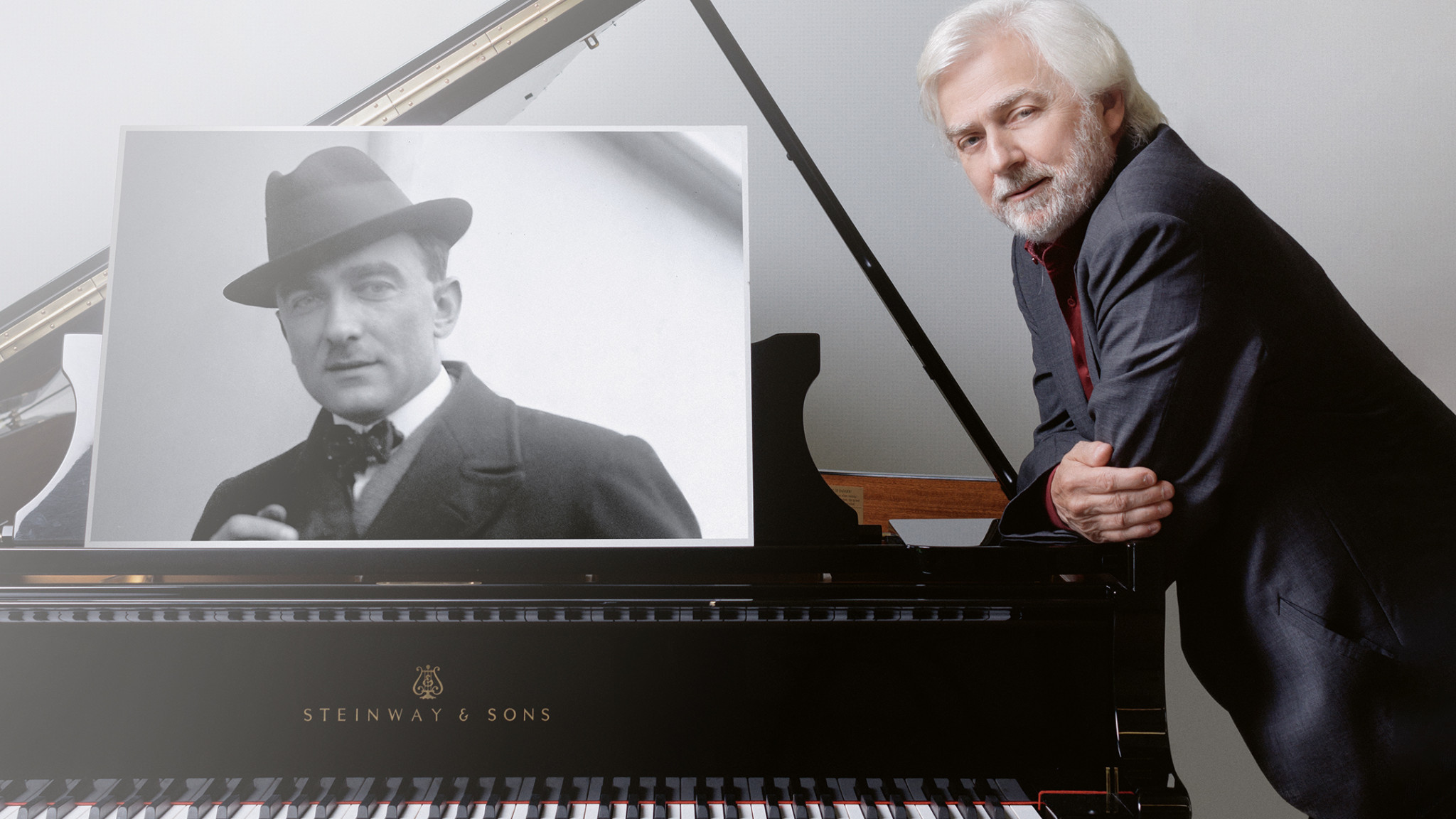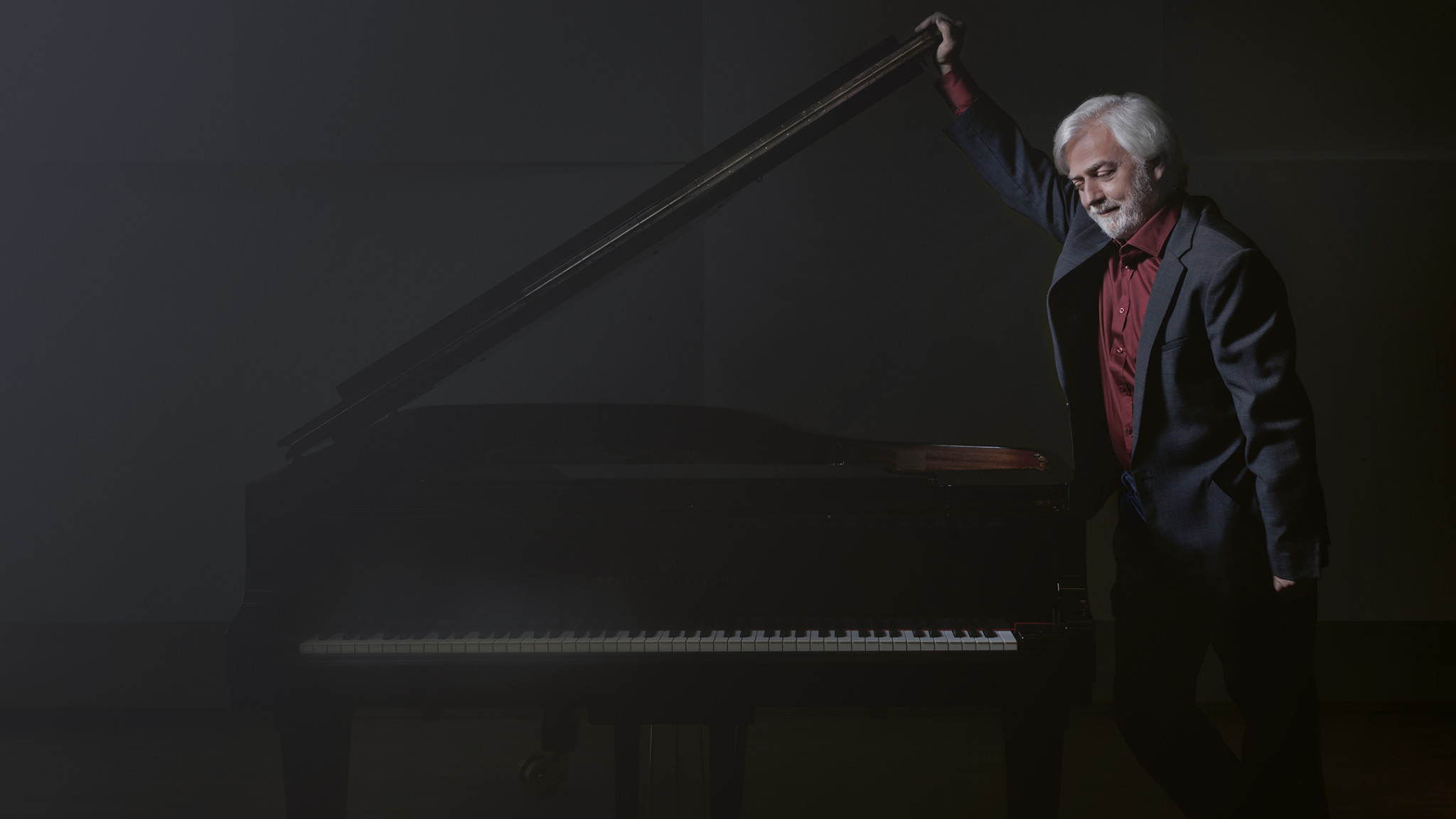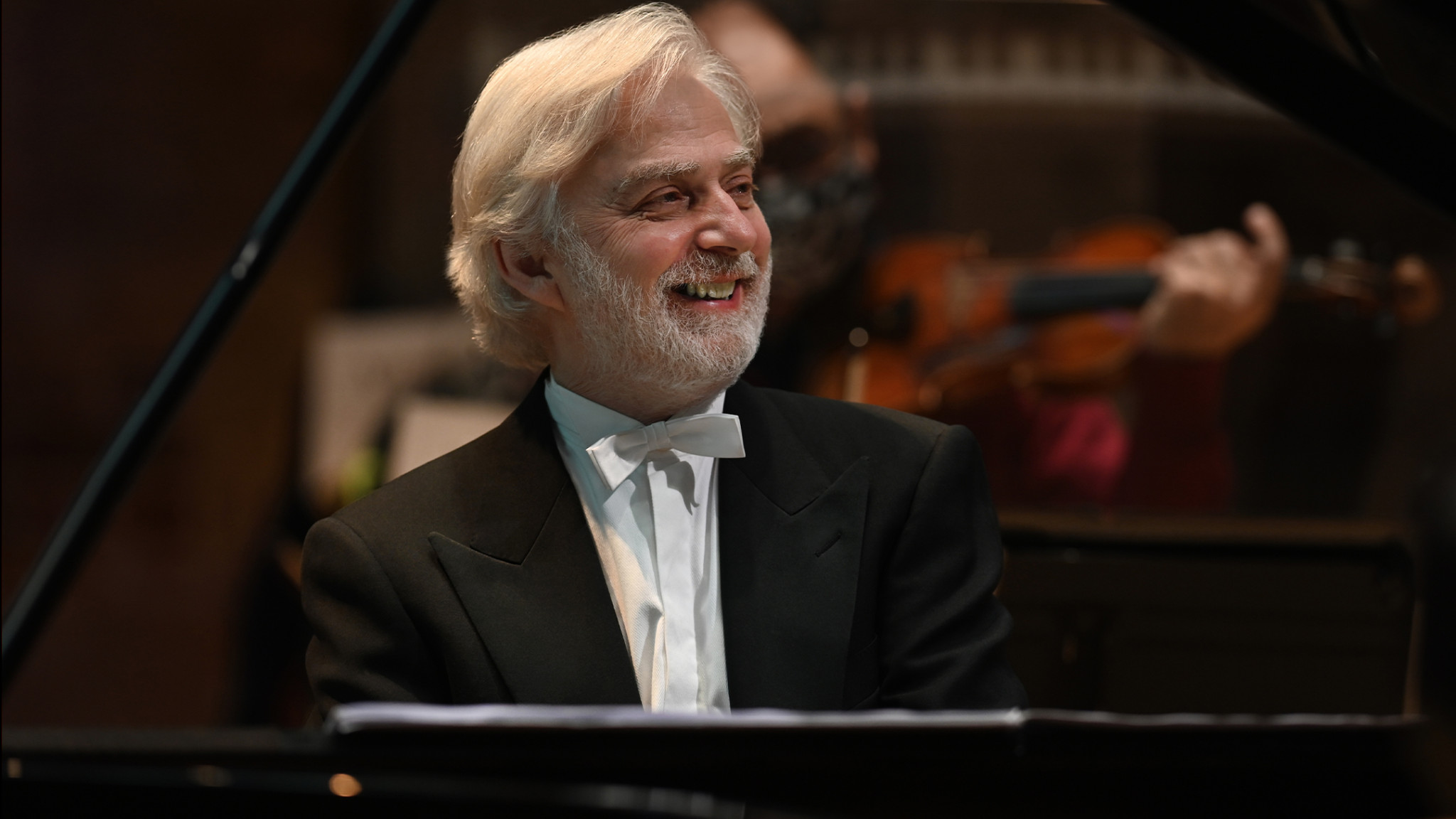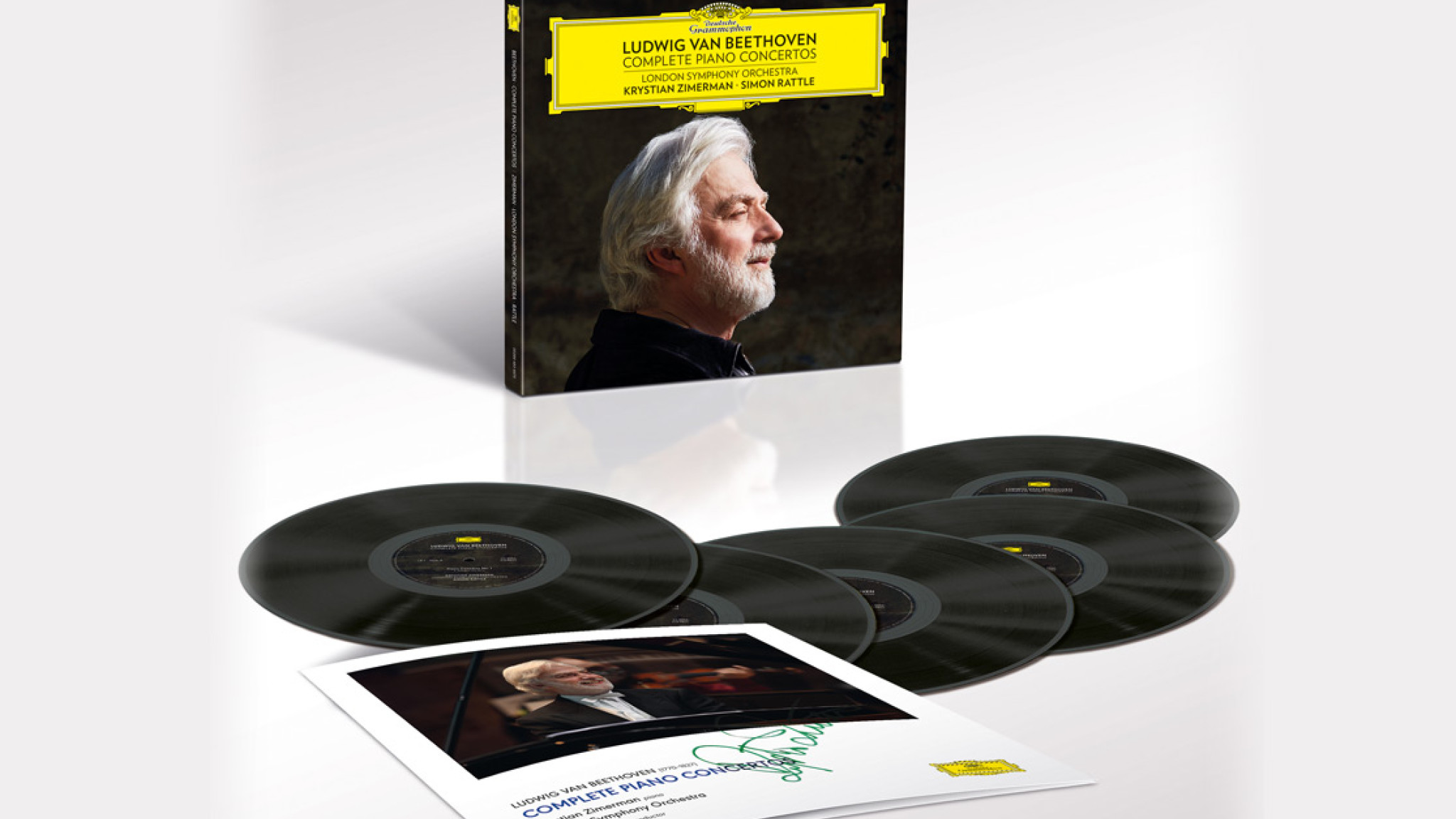Masques and Mazurkas: Krystian Zimerman Plays Szymanowski

Polish pianist Krystian Zimerman returns to his roots to pay tribute to his compatriot Karol Szymanowski on the 140th anniversary of the composer’s birth. Having studied his solo piano works for decades, Zimerman presents a new album of richly varied repertoire spanning the period from 1899 to the mid−1920s. His aim is to shed new light on this less familiar aspect of Szymanowski’s output and help cement his reputation as one of the great composers of piano music.
There is also a strong thread of friendship running through this album, linking both Szymanowski and Zimerman to legendary pianist Arthur Rubinstein, and Zimerman to the world-renowned acoustician Yasuhisa Toyota. Coupling repertoire captured this year at the Toyota-designed concert hall in Fukuyama with previously unreleased recordings made by Zimerman in 1994, Karol Szymanowski: Piano Works will be released by Deutsche Grammophon on 30 September 2022 on CD and digitally, including an immersive surround sound version. A 2-LP edition will follow on 21 October.
Zimerman bookends his programme with music written in Szymanowski’s student days, beginning with four of the nine Preludes Op. 1, some of which may date back as far as 1896, when the composer was only 14. Masques Op. 34, written on the composer’s family estate in Ukraine during the First World War, reflects both Szymanowski’s immersion in the writing of Debussy, Scriabin and Stravinsky and his pre-war travels in North Africa and the Mediterranean region. A work from the height of his artistic maturity, it portrays three literary figures: Scheherazade, “Tantris” or Tristan and Don Juan.
This is followed by four of his twenty Mazurkas Op. 50 (1926–31), the only set to compare in substance with those of Chopin. Brimming with complex rhythmic writing, chromatic harmonies and rich textures, and setting considerable technical challenges for the performer, the pieces were largely inspired by the folk songs and dances of the Tatra Mountains. Zimerman then concludes with the exquisite Variations on a Polish Folk Theme Op.10, a work which won the composer shortlived acclaim from Polish critics after its first performance in 1906.
Szymanowski dedicated the “Don Juan” movement of Masques to his friend Arthur Rubinstein, a lifelong advocate of the composer’s music. Many years later, Rubinstein became a friend and mentor to the young Krystian Zimerman, offering him advice he still values hugely today. Zimerman recorded Masques in Copenhagen in 1994 but the tracks were never released. With Szymanowski’s anniversary in mind, on receiving an invitation from another good friend, Dr Yasuhisa Toyota, he leapt at the opportunity to record more of the composer’s solo works in the Fukuyama concert hall – one of many around the world to have benefited from the acoustician’s design wizardry. “In Toyota’s halls, every note is clear,” notes Zimerman, “yet each is in a cushion of warm surroundings.” His completed journey through this repertoire offers listeners a fascinating insight into Szymanowski’s sound world, from the glitter and opulence of Masques to the earthy folk idioms of the Mazurkas.
Three taster tracks will be released digitally in advance of the full album. Prelude Op. 1 No. 2 in D minor will be available on 12 August, followed by the Sixth Variation from the Variations on a Polish Folk Theme on 26 August and Prelude Op. 1 No. 1 in B minor on 16 September.
About Szymanowski
Born in 1882 in Tymoszówka (now in Ukraine), Karol Szymanowski spent most of his early life far from Warsaw, and was something of an outsider in the Polish music world of his day. After periods spent in Vienna, travelling around southern Europe and North Africa, and visiting America, he returned to a now independent Poland committed to establishing a national musical identity for his homeland. He briefly held roles as director of the Warsaw Conservatory and, later, rector of the city’s Music Institute – dismissed from the latter post, he returned to touring as a pianist, but his health gave way and he died in 1937, aged just 54. His music was more valued outside Poland during his lifetime, a situation that was then reversed. More recently, however, his once-neglected output has been rightfully recognised for its original voice, one that emerged from a rich mix of influences – from post-Wagnerian Romanticism, via an orientalism inspired by Middle Eastern art and poetry, to the works of Debussy and Ravel, Scriabin and Stravinsky, not forgetting of course the traditional Polish styles that informed works such as the Mazurkas.





